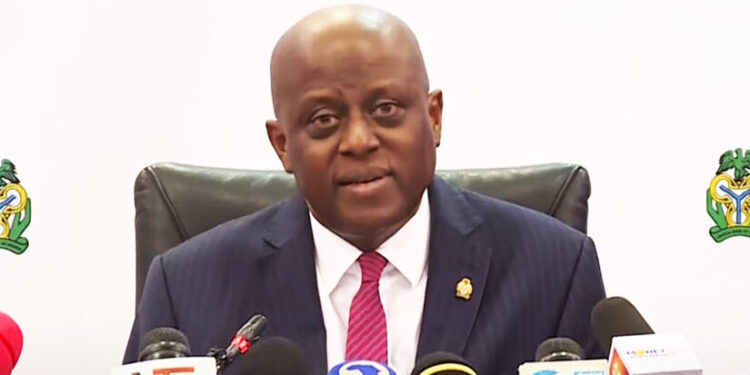The Central Bank of Nigeria (CBN) has successfully cleared an outstanding $7 billion foreign exchange backlog, marking a significant milestone in the country’s efforts to restore economic stability and investor confidence. The announcement was made by CBN Governor Olayemi Cardoso at the launch of Nigeria’s Regulatory Policy Framework, an event organized by the Presidential Enabling Business Environment Council (PEBEC) in Abuja.
Forex Backlog Clearance to Boost Business Operations
Governor Cardoso emphasized that settling the backlog would ease the foreign exchange liquidity constraints faced by businesses, multinationals, and foreign investors. The move is expected to facilitate seamless repatriation of funds, a critical factor in attracting and retaining investment in Nigeria.
“In addressing foreign exchange liquidity constraints, decisive steps have been taken to clear the outstanding $7 billion forex backlog, ensuring that businesses and foreign investors can repatriate their funds without difficulties,” Cardoso stated.
He further noted that verified claims have been fully settled, while unverified ones are undergoing final evaluation by forensic auditors. “We are at the final stages of separating fully verified claims, and once confirmed, payments will be made,” he assured.
Challenges in the Verification Process
Cardoso acknowledged that the process took longer than expected due to irregularities in past forex transactions. “Unfortunately, there were several practices that should never have occurred in the first place. However, we are committed to strengthening our market and fostering trust among investors,” he added.
The backlog clearance aligns with the government’s broader objective of improving economic transparency and efficiency. The CBN has vowed to implement stricter regulations to prevent future accumulation of unresolved forex claims.
Government’s Commitment to a Stable Business Environment
At the same event, PEBEC Director-General Princess Zahrah Audu reaffirmed the government’s commitment to providing a stable and predictable policy environment for businesses. She emphasized that stakeholder engagement will be a key part of policy formulation moving forward.
“We are actively encouraging sectoral stakeholder discussions before policies are enacted to ensure inclusivity and effectiveness,” Audu explained. “This administration is doing things differently, valuing the input of businesses, and maintaining an open-door policy for communication.”
Looking Ahead
The clearance of the forex backlog is expected to strengthen investor confidence, stabilize the exchange rate, and support economic growth. Analysts believe this move will attract more foreign investment, enhance liquidity in the forex market, and reduce speculative pressure on the naira.
With the government and CBN implementing reforms, businesses and investors anticipate a more transparent and efficient financial system in the coming months.









